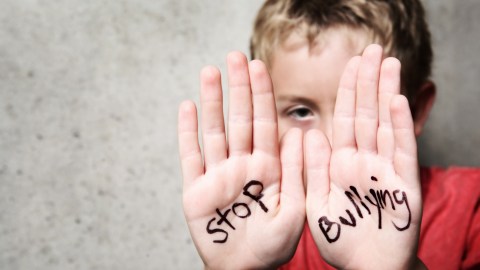Anti-Bullying Campaigns Still Largely Ineffective

Did you know October was National Bullying Prevention Month? Neither did I, which I suppose isn’t too big a deal as I’m not necessarily the target audience. Yet according to researchers at Clemson University, campaigns such as NBPM are falling on deaf ears in all age groups. Bullying is still a big problem and doesn’t appear to be slowing down anytime soon.
As Eric Markowitz of Vocativ writes, it may be worth taking a second look at efforts to curb bully behavior. Campaigners need to assess whether current methods can be reasonably expected to reap actual results:
“Considering that the rate of bullying seems pretty much constant, it’s worth asking: Is this movement — as well as the prevention efforts around it — a flop?”
Markowitz entertains a few different trains of thought related to ineffective bullying campaigns. The first argument is that schools don’t have the resources necessary to fully implement anti-bullying measures. A half-executed action plan cannot be expected to achieve full successful. This is why, as one professor states, the anti-bullying sect has made only small gains and has yet to really break through.
On the other hand, there’s the opinion that people just tend to naturally treat each other poorly, particularly for the purpose of achieving social rank. A few laminated posters and shock-value PSAs aren’t going to change thousands of years of primal behavior. Neither are draconian policies such as zero tolerance or anti-social media campaigns. Some argue that these approaches attack symptoms, not the disease.
Still, bullying is a major issue that affects millions of people everyday. Here’s Markowitz again:
“Whether or not you buy into the notion that we’re in the midst of a bullying epidemic, the studies speak for themselves: Between 1 in 3 and 1 in 4 teens in America now say they’ve been bullied in some form or another. More than half say they’ve witnessed it. There’s bullying happening in the workplace; there’s bullying happening against teachers.”
There’s a slice of society that would argue that learning to deal with bullies is a natural step toward one’s development, and that the bullied should just “suck it up.” While this may seem harsh, it reflects a worldview that the assumes the aforementioned belief that lousy people doing lousy things exist universally — not just in school. The belief here is that those who don’t develop strategies for dealing with young bullies will grow up to be helpless adults.
On the other side, those who put their effort behind the anti-bullying “industry” appear to eschew the above stance that poor treatment of others is a natural phenomenon. We’re not cavemen anymore. Why should be still act like it? Their hope is that if you can convince enough children to be civil with one another, that respect will translate into adulthood and therefore into a state of social affability to replace our current state of social coldness. It’s something of a utopian dream, yet many folks are willing to put their time and money towards it.
Whether any of it will actually work remains to be seen.
Read more at The Week
Photo credit: Suzanne Tucker / Shutterstock




